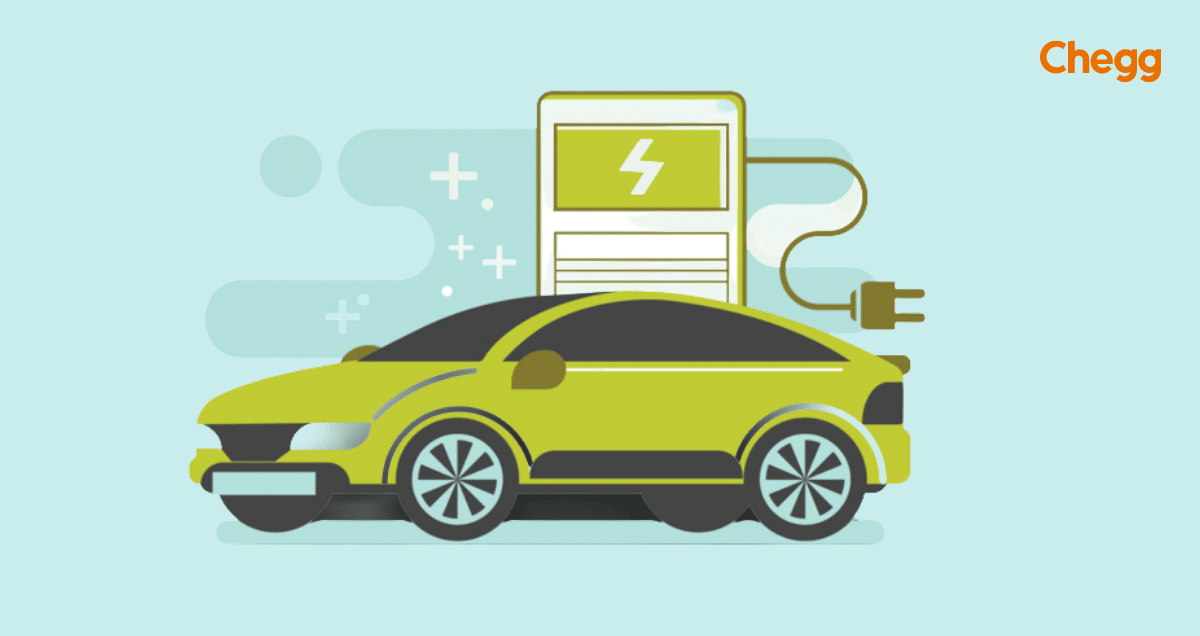

Quick Summary
The future of electric vehicles in India is rapidly reshaping the country’s transportation landscape with sustainable and innovative solutions. With increasing electric vehicle adoption, India is addressing environmental concerns while opening up new business opportunities. The market for electric cars and other EV types is expanding due to supportive government policies and technological advancements. Exploring the future of electric vehicles in India advantages and disadvantages is crucial to understanding this transformative shift. As awareness and infrastructure improve, electric vehicles are poised to become a key player in India’s clean energy and mobility revolution.
An electric vehicle (EV) is an automobile that runs entirely or partially on electric power, using an electric motor instead of a traditional internal combustion engine. EVs store electricity in rechargeable batteries, which power the motor and eliminate the need for gasoline or diesel fuel. They produce zero tailpipe emissions, making them more environmentally friendly than conventional vehicles, and often offer quieter operation and lower maintenance costs.

The Indian electric vehicle (EV) market’s immense potential has attracted several companies keen to capitalize on the growing demand for e-vehicles in India. Major international automobile manufacturers, including Tesla, Hyundai, and Nissan, have expressed interest in entering the Indian EV market, eyeing a significant share of this emerging segment. Moreover, several Indian startups, such as Ola Electric and Ather Energy, are already making waves with their innovative EV offerings.
These companies recognize the vast market opportunity in India, driven by:
The future of electric vehicles in India offers a plethora of exciting opportunities. The country’s flourishing EV market, coupled with the government’s push for sustainable mobility, creates a conducive atmosphere for a bright future of electric cars in India.

Here are some business opportunities waiting to be explored in the future of EVs in India:
As the adoption of electric vehicles grows, the demand for reliable and accessible charging infrastructure will surge. Out of the one million public charging points in the world, only 0.1% of them are in India. Some of the significant business opportunities in this sector are-
A proper charging infrastructure in India is crucial for the future of electric vehicles in India.
A comprehensive battery ecosystem is essential for the EV future in India. Investing in battery manufacturing plants or establishing battery recycling units can be a game-changer. The lithium-ion batteries used in electric vehicles can be recycled, and valuable materials can be recovered to make brand-new car batteries, making battery manufacturing and recycling a lucrative business.
With the right technology and processes, you can contribute to the sustainable management of battery resources and reduce environmental impact.
EVs require specialized components and software for optimal performance. From motors and power electronics to battery management systems and infotainment, there is a demand for cutting-edge technologies in the EV space. Developing and supplying these components can open doors to lucrative business ventures.
With the rising interest in electric mobility, fleet operators are keen to transition to electric vehicles. Offering electric vehicle leasing, rental, or fleet management services can be a lucrative opportunity. Providing solutions that include vehicle maintenance, charging support, and fleet optimization can set you apart in this growing market.
The growing EV market necessitates the production of various EV components and accessories. Big names in the global e-vehicle industry are looking to India to set up facilities for manufacturing equipment for e-vehicles in India.
Establishing an EV equipment manufacturing company can cater to the rising demand for EV batteries, motors, power electronics, charging equipment, and other specialized components.
As the EV market expands, automakers and established EV companies such as Ather Energy, Ashok Leyland, and Hyundai seek to expand their reach through franchising and dealership opportunities. Entrepreneurs can partner with reputed EV manufacturers and become authorized dealers, providing sales, servicing, and maintenance services for electric vehicles in specific regions.

India imports a large portion of its oil, which can strain the country’s economy. EVs help reduce oil dependency, shifting the energy consumption from petroleum products to electricity, which can be sourced from renewable energy sources like solar and wind power.
As the EV market grows, it stimulates new industries such as battery production, electric charging stations, and vehicle manufacturing. This can create new jobs and promote economic growth in these sectors.
EVs are generally much quieter than conventional vehicles. This helps reduce noise pollution, especially in urban areas, improving the quality of life. According to the 2022 UNEP study, five Indian cities are among the world’s noisiest cities. Though automobiles are not the only source highlighted in the paper, EVs are expected to reduce noise levels because they lack mechanical valves, gears, and fans seen in ICE vehicles.
Despite advancements in battery technology, range anxiety remains a concern for many prospective EV buyers. The limited driving range of some electric vehicles compared to traditional internal combustion engine vehicles hinders their appeal, especially for long-distance travel. Improving battery efficiency and affordability is crucial to address this issue and instill confidence in potential customers.
While EVs promise long-term savings through reduced operational costs, their initial purchase price remains higher than conventional vehicles. The high upfront costs pose a significant barrier to entry for many consumers, deterring them from considering EVs as an option. Government incentives and subsidies play a crucial role in bridging this affordability gap and encouraging wider adoption.
The time taken to recharge an EV is another concern for the future of electric cars in India. Fast-charging technologies are improving, but the charging time is still longer compared to refueling a conventional vehicle. Additionally, compatibility issues arise with different charging standards, which can confuse users and hinder the seamless charging experience.
Despite growing awareness of the environmental benefits of EVs, there still exists a lack of widespread knowledge among consumers regarding electric vehicles’ practicality and performance. Clearing the misconceptions and promoting the advantages of EVs is essential to increase their acceptance among potential buyers.
Read More: https://www.cheggindia.com/earn-online/electric-vehicles-company-in-india/
The future of electric vehicles in India holds immense promise as the nation accelerates toward sustainable transportation. With growing demand for electric cars and government initiatives supporting infrastructure development, India is poised for significant growth in the electric vehicle sector. While challenges such as charging infrastructure and high upfront costs remain, the advantages of electric vehicles in India, including reduced pollution, lower fuel expenses, and energy security, underscore their importance. Understanding the future of electric vehicles in India, advantages and disadvantages, is essential as the country transitions to cleaner, smarter mobility solutions, making EVs a cornerstone of India’s green future.
Innovative, low-investment ideas for the hidden entrepreneur in you! Explore our guide on Business Ideas.
Recommended Read :
The Future of EV Adoption in India
We expect total electric passenger vehicle production in India to surge to approximately 1.33 million units by 2030, accounting for about 20% of the country’s total passenger vehicle production.
The future of electric vehicles (EVs) is bright, with ongoing innovations in battery tech, charging infrastructure, and energy efficiency. As governments push for sustainability and the cost of EVs decreases, widespread adoption is expected, transforming transportation into a cleaner, greener industry.
By 2030, India’s EV market is expected to witness rapid growth, with projections suggesting EVs could account for 30-40% of total vehicle sales. Government incentives, expanding charging infrastructure, and increased consumer awareness will drive this shift towards cleaner, sustainable mobility.
EV adoption in India faces challenges like limited charging infrastructure, higher upfront costs, range anxiety, and lack of widespread awareness. Additionally, slow development in battery tech and a reliance on fossil-fuel-based power grids hinder the transition to electric mobility.
The biggest challenge with electric vehicles is the limited charging infrastructure, which creates range anxiety and inconvenience for users. Additionally, high initial costs, long charging times, and dependence on battery technology advancements are barriers to widespread adoption.
The scope of electric vehicles (EVs) in India is substantial and rapidly expanding, with the government aiming for 30% EV penetration in private cars, 70% in commercial vehicles, 40% in buses, and 80% in two and three-wheelers by 2030. This translates to an ambitious goal of 80 million EVs on Indian roads by 2030. The EV market in India is projected to become one of the world’s largest by 2030, driven by increasing investments and government support.
Yes, electric vehicles (EVs) in India offer long-term savings through lower maintenance and fuel costs. Despite high upfront costs, government incentives and reduced operating expenses make EVs a cost-effective choice in the future.
Government policies, incentives, expanding charging infrastructure, advancements in battery technology, and increasing consumer awareness will play crucial roles in achieving India’s electric vehicle goals, making the transition to EVs more accessible and sustainable.
Advantages include reduced pollution, lower fuel costs, and energy security. Disadvantages involve limited charging infrastructure, high upfront costs, and range anxiety. Despite challenges, government support is boosting EV adoption in India’s future.

Authored by, Samiksha Samra
Digital Content Writer
Samiksha is a writer with a passion for sharing ideas and a knack for detail. She loves turning concepts into meaningful, engaging content. With a strong background in research and content strategy, she crafts clear, easy-to-understand narratives that resonate with readers. Her curiosity drives her to explore new subjects, ensuring every piece she creates is both insightful and impactful.
Editor's Recommendations
Chegg India does not ask for money to offer any opportunity with the company. We request you to be vigilant before sharing your personal and financial information with any third party. Beware of fraudulent activities claiming affiliation with our company and promising monetary rewards or benefits. Chegg India shall not be responsible for any losses resulting from such activities.
Chegg India does not ask for money to offer any opportunity with the company. We request you to be vigilant before sharing your personal and financial information with any third party. Beware of fraudulent activities claiming affiliation with our company and promising monetary rewards or benefits. Chegg India shall not be responsible for any losses resulting from such activities.